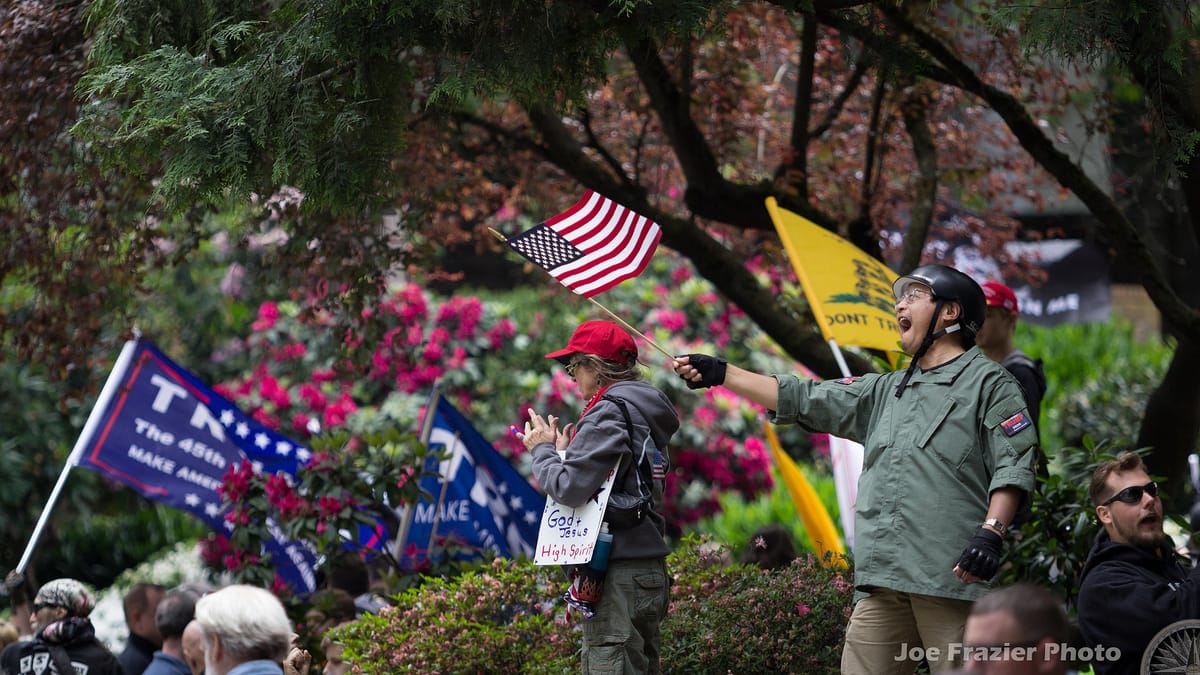Editorial: Never here
Editor-in-Chief Calum Drysdale asks how we can avoid a replay of what happened in the US here in Britain

Watching videos of and reading articles about Americans being pulled off planes and being tried as domestic terrorists over the last week, it took me a while to realise the incongruity of what I was watching. Time and time again the same images would come up. Americans had travelled, often long distances to come and protest and then were struggling to get home. Where were the homegrown, DC raised Capitol raiders? The answer, other than the facetious ‘They were on the House floor’, is that there probably were next to none. The practise of geographical sorting based on political ideology has been going on for a long time in America with precedents stretching back to Civil war era North South divides and redlining that divided cities into desirable (and white) areas and non-desirable (and you guessed it, black) areas. However, the practice has accelerated in recent years with the ‘Big Sort’ taking off in around 1996. It is now more likely than ever for people in the US to not associate at all with those that disagree with them politically.
Luckily, we here in Britain are not there yet, whatever the people who write “No Tories” in their dating profiles would like, but we have all the elements needed to create a similarly toxic environment and should think hard about how we can avoid it.
Reading Roger Scruton’s book ‘Where we are’ he writes about how, in order to bring Remainer and Brexiter together, a common point must be found. A shared notion that both are British and are tied together beyond the ability of disagreement to divide. Self-sorting to me comes across as a reaction to a lack of such an overarching store of allegiance. Suddenly, not tied together anymore, every neighbourhood becomes a ghetto, persecuted and different from the outside that must circle the wagons and preserve the traditions and practices of that place. Dissidents leave and pilgrims arrive. The inevitable result is extremism and greater partisanship.
But what does Britain mean? How can we agree on a point that means such different things to different people? The right often tries to achieve this through myopic shows of pomp and ceremony. A selective, best hits version of history meant to convince us that everyone else in the world is a pansy. The response by the left is often robotically intellectual. A reference to the death figures in the Bengal famine perhaps or the horrors of a slaver’s hold two weeks into a trans-Atlantic crossing. Both sides happily miss each other’s point.
I offer a humble answer. To adapt Norman Tebbit’s unfortunate Cricket test, if an alien race arrived offering the people of the world the chance to be mixed together and come aboard to live in total idleness and luxury, would you, in the three seconds before accepting, think “I will miss some of this”?
This is topophilia, the love of a place, despite its crappy weather, irritating customs and silly people. It is a sense that anyone can acquire, not tied to creed or colour, and it is a sense that makes us want to improve this place of ours when it is criticised rather than getting angry. It is a trite thing, but it is from small seeds of agreement that great oaks can grow. If we could all agree that, we would miss some of this if it were gone, then maybe Britain can avoid the horror of what the US is experiencing.





